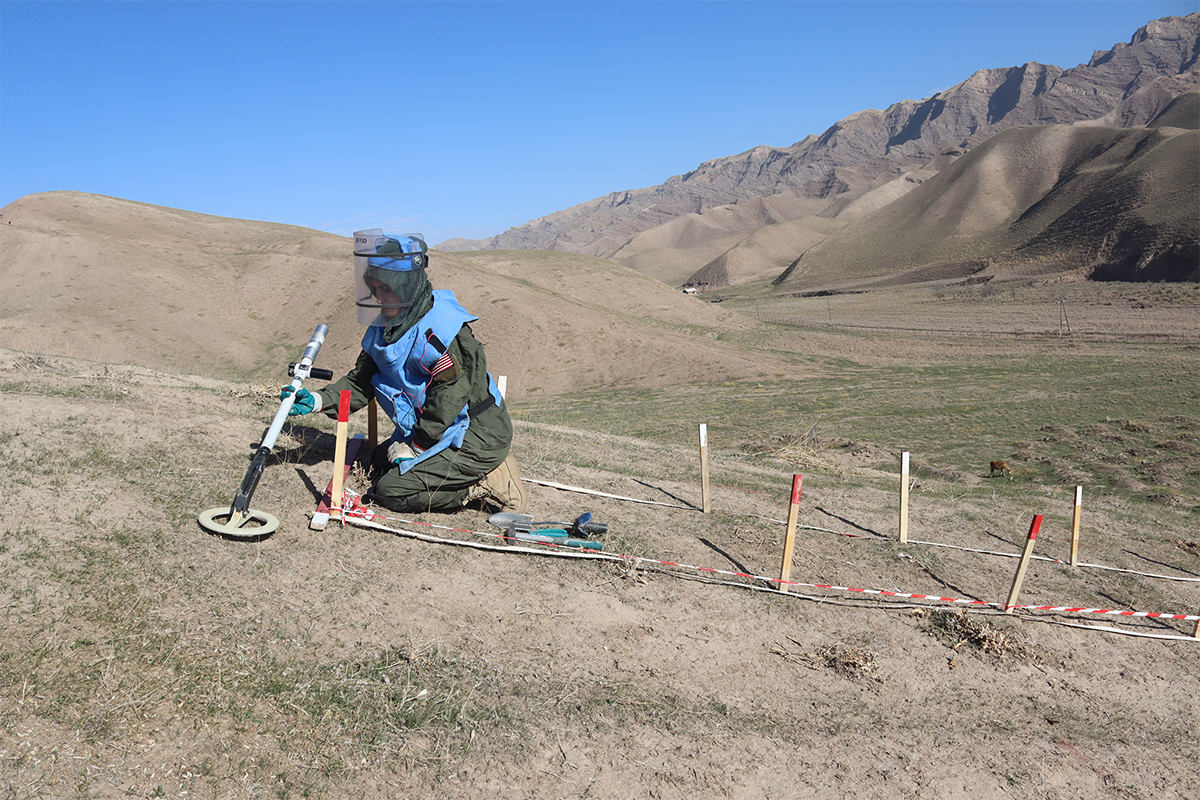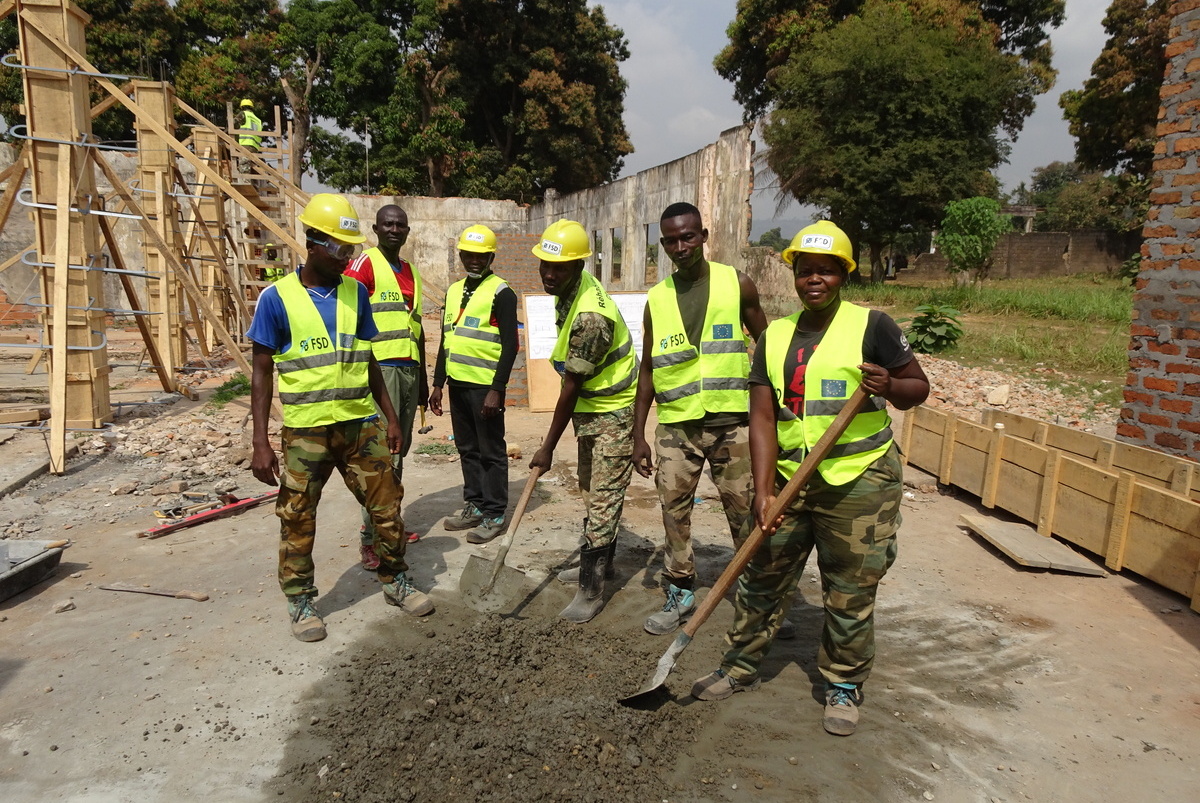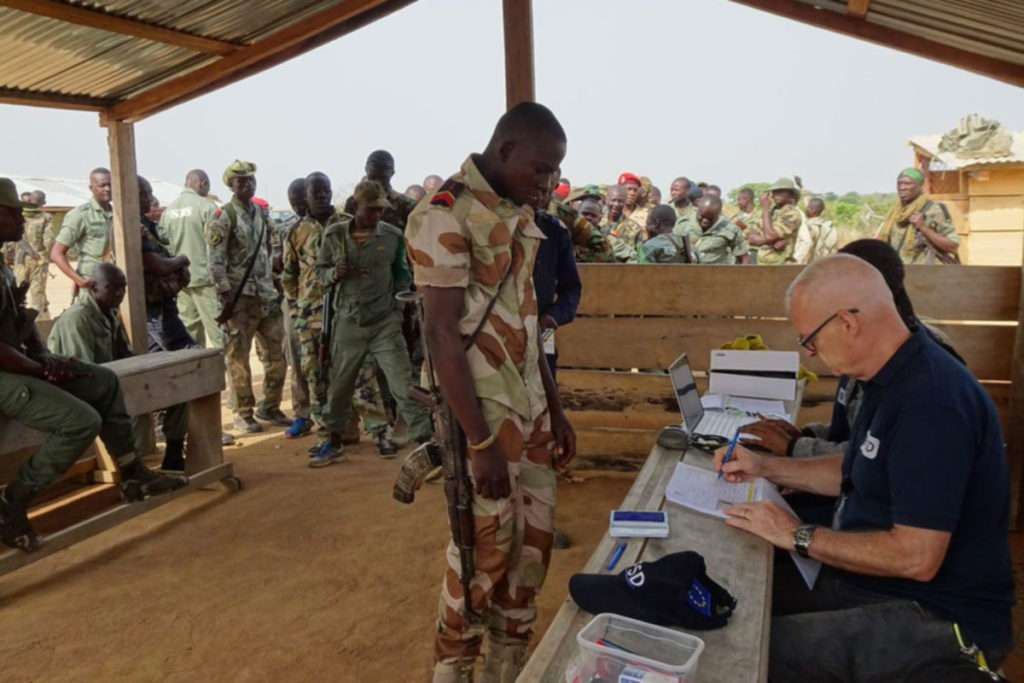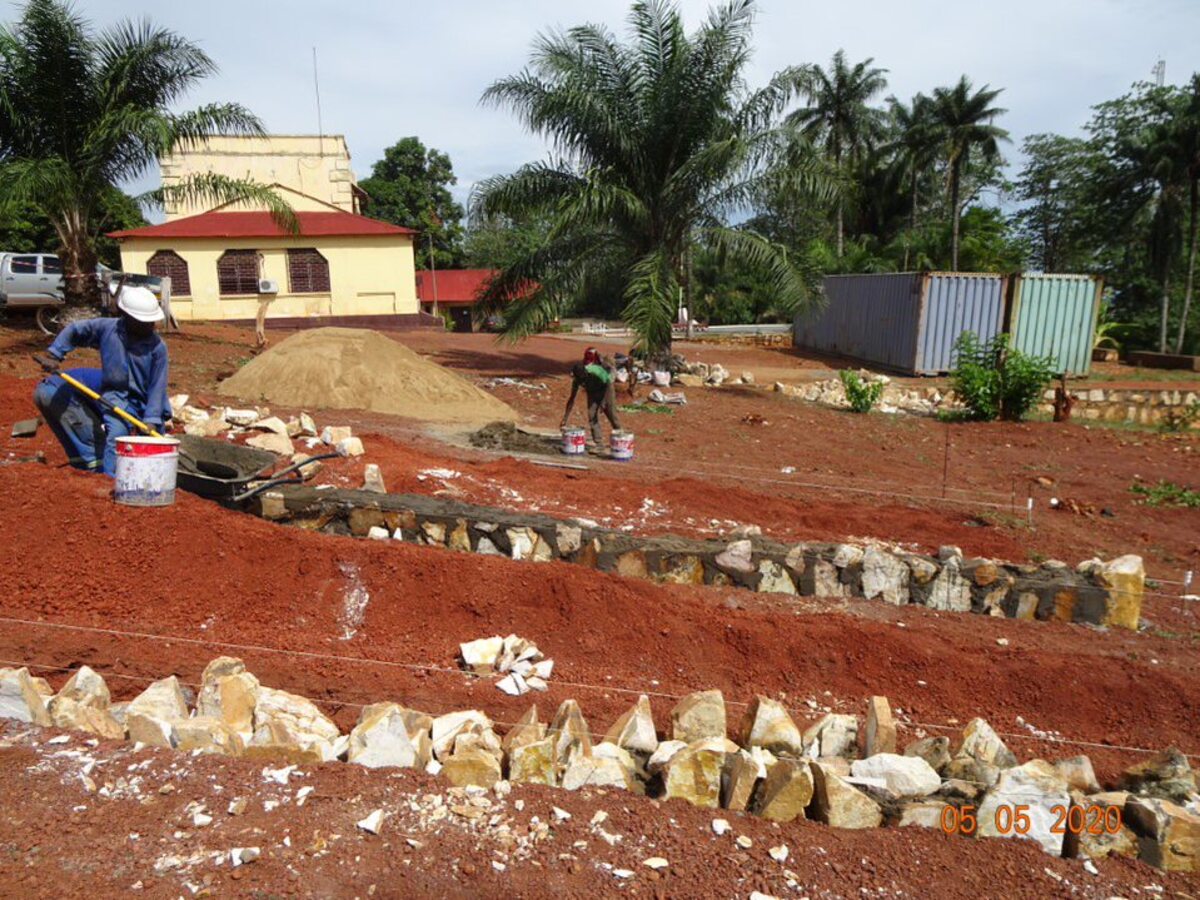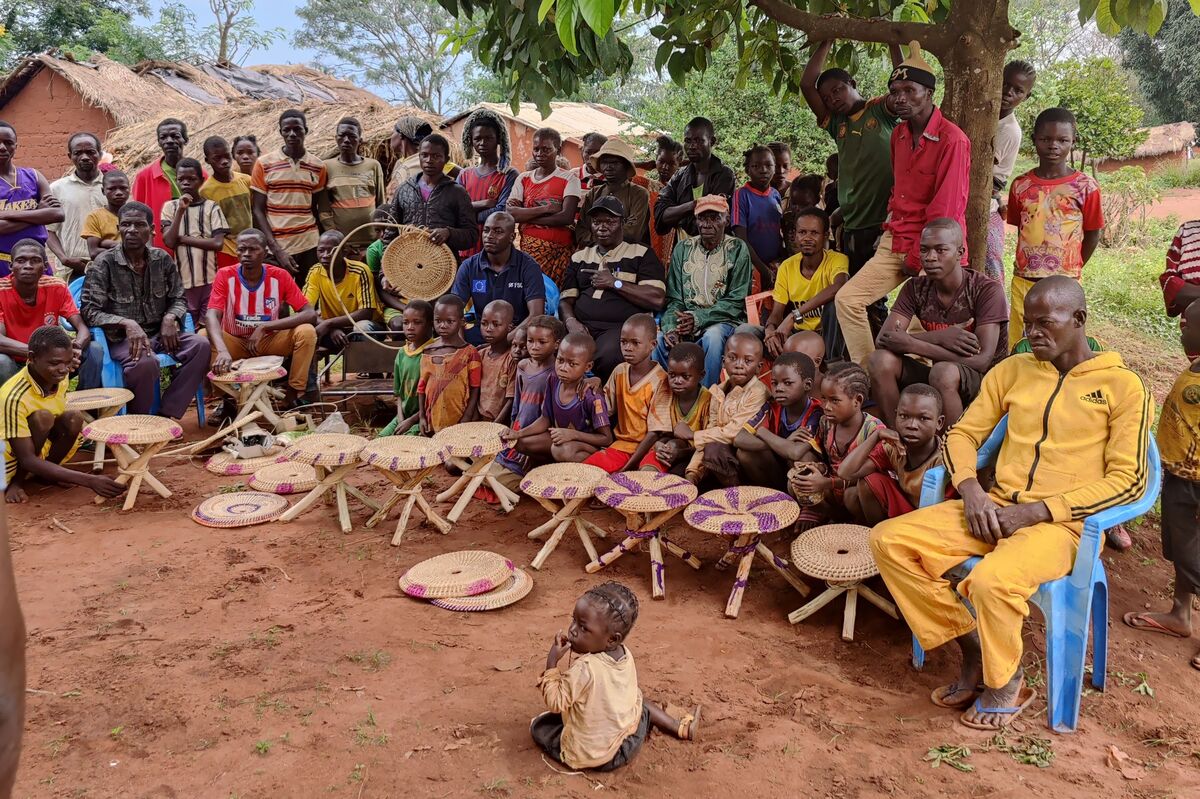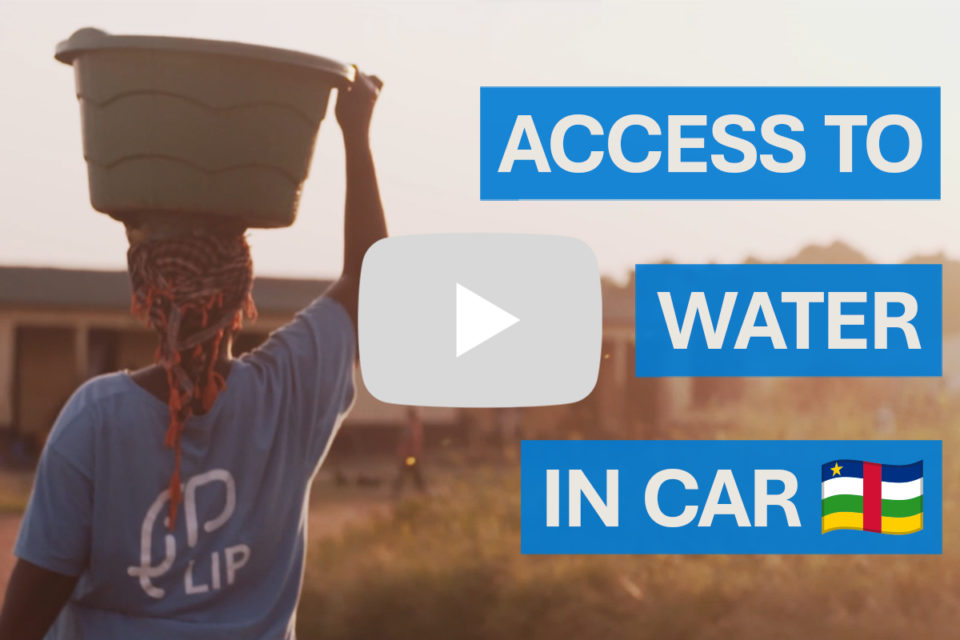Central African Republic
Active in the country since 2014, FSD contributes to the peace process through various projects and provides socio-economic support to vulnerable communities.
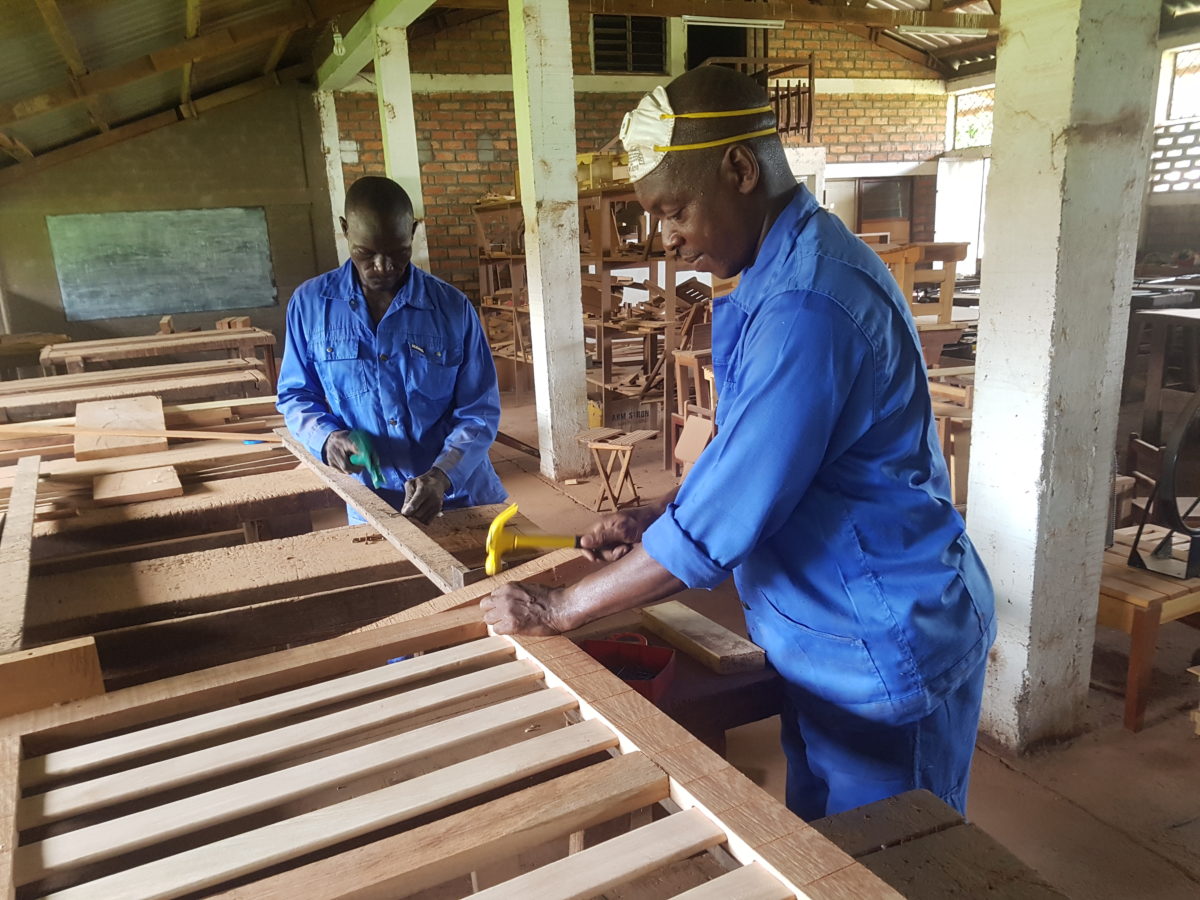
Two former combatants taking part in FSD’s reintegration programme with the aim of becoming carpenters. (Central African Republic, 2021)
Central african republic
Context
The Central African Republic has endured decades of violence and political unrest. Since the resumption of the civil war in early 2013, one in four Central Africans have left their home. Poverty is endemic and the majority of the population has no access to essential services.
In 2019, the Government and the main armed groups in the country signed a Peace Agreement.
The agreement led to a process, initiated with the support of the European Union, to reform the security sector as well as to demobilise, demilitarise and reintegrate former combatants.
The agreement involved creating special mixed security units, comprising members of the Central African Armed Forces and of the different armed groups. It also involves implementing measures to restore State authority throughout the country, which primarily remains under the control of rebel groups outside of major towns and population centres.
The aim is to guarantee the stability of the country and the safety of the population, enable internally displaced people to return to their homes and help improve living conditions.
Thanks to this disarmament project, I now have a job. I can build things. I would never abandon this to return to fighting.
former rebel of an armed group
Trained in carpentry by FSD as part of its support to the peace programme
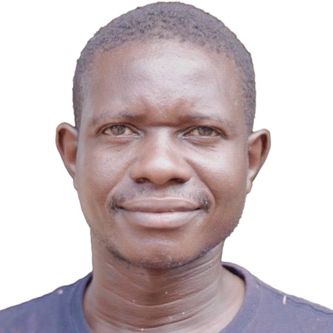
Timeline
FSD in the Central African Republic
In 2014, whilst the country was in the middle of a civil war, FSD launched its first initiative, a small project to raise awareness on the dangers associated with handling weapons, ammunition or explosive remnants of war. The organisation was also involved in the humane recovery, identification and burial of victims of the conflict.
From 2015, as part of a European Union project, FSD gradually focused its efforts on activities aimed at restoring the authority of the State in the country. This included supporting the organisation and administration of the Central African Defence Ministry, and support to the deployment of new security forces in different regions of the country.
FSD also facilitated the payment of a monthly food allowance to members of the USMS (Unités spéciales mixtes de sécurité), located in Bouar, Paoua and Ndele.
This task is mandated by the Peace Agreement and paid for by the EU, using a digital ID programme to track payments through biometric data control.
In 2022, FSD focused on promoting the reintegration of members of the USMS, who were former members of rebel groups, into civilian life via vocational skills training in Bouar and Paoua.
At the same time, FSD carries out support activities within local communities. Measures are underway to create jobs, improve access to drinking water, promote the empowerment of women and ensure access to education for children.
FSD’s programme in the Central African Republic is supported by the European Union and various private foundations.
Stories
News from the Central African Republic
Drilling wells
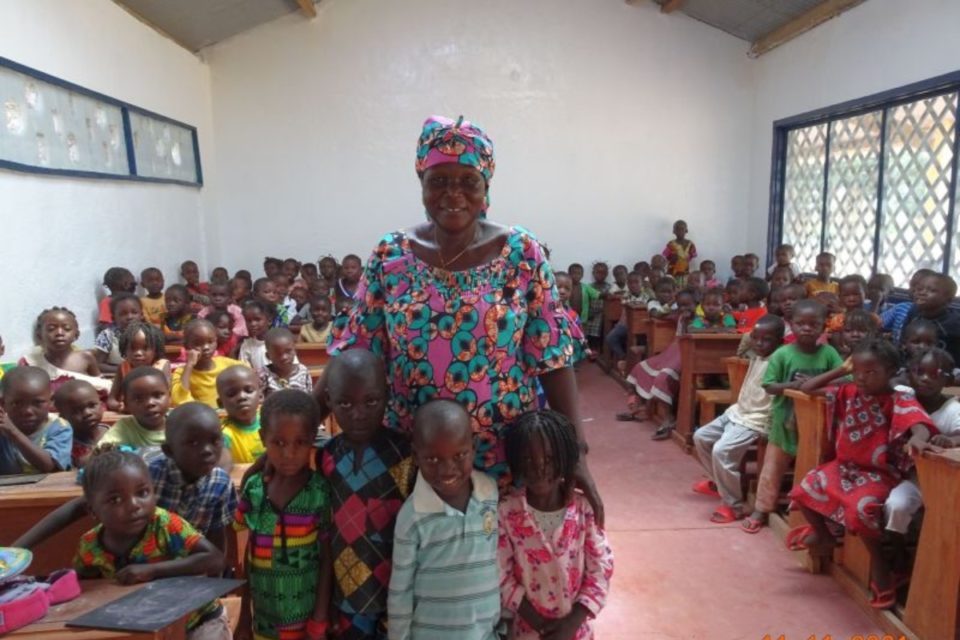
A brand new school in Bouar
In Camp Leclerc, FSD rehabilitated the local public school […] including building a completely new facility to accommodate hundreds of pre-school children.
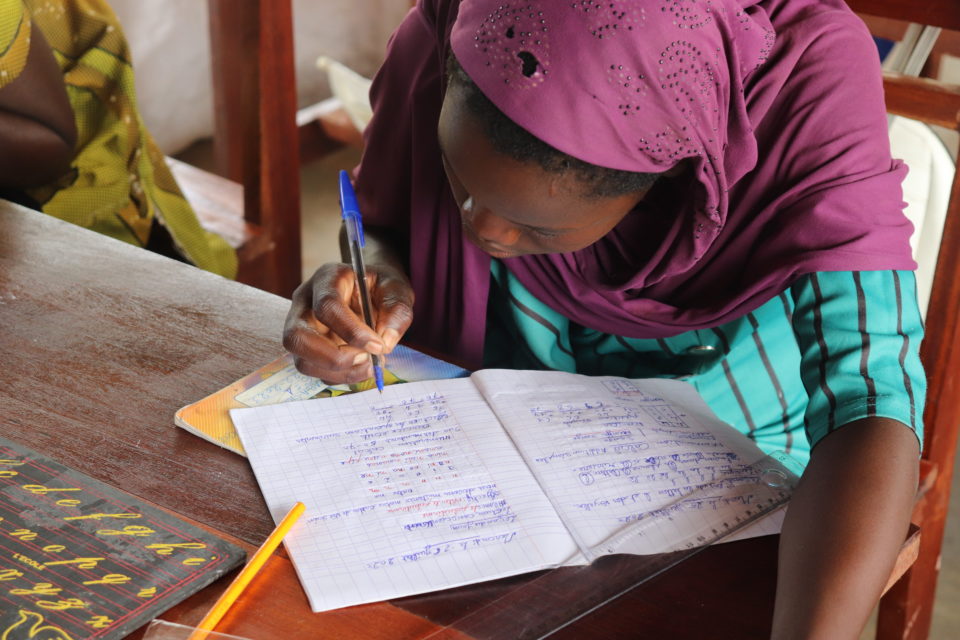
WOMEN’S EMPOWERMENT THROUGH TRAINING
FSD’s socioeconomic support activities continue in N’dele and Bria. Through a variety of training programmes offered by our teams, women have the opportunity to develop new skills!
DISARMAMENT AND REINTEGRATION
In 2023, 276 former Central African combatants were provided with professional training to reintegrate into civilian life.
newsletter
Where is FSD currently working in Ukraine? What does a landmine look like? Answers to your questions, once a month.
- News from the field
- Demining videos
- Interviews with experts
- Events
- Job offers
